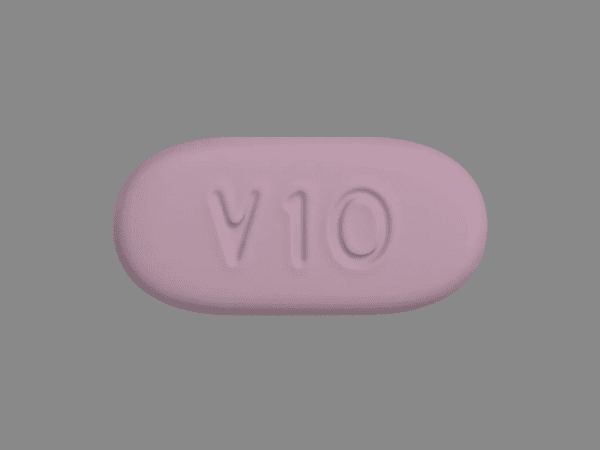Deutivacaftor/tezacaftor/vanzacaftor and Alcohol/Food Interactions
There are 3 alcohol/food/lifestyle interactions with deutivacaftor / tezacaftor / vanzacaftor.
Tezacaftor Food/Lifestyle
Moderate Food Interaction
Consumer information for this interaction is not currently available.
GENERALLY AVOID: Grapefruit juice may increase the plasma concentrations of tezacaftor, deutivacaftor, and vanzacaftor. The proposed mechanism is inhibition of CYP450 3A4-mediated first-pass metabolism in the gut wall by certain compounds present in grapefruit. In general, the effect of grapefruit juice is concentration-, dose- and preparation- dependent, and can vary widely among brands. Certain preparations of grapefruit juice (e.g., high dose, double strength) have sometimes demonstrated potent inhibition of CYP450 3A4, while other preparations (e.g., low dose, single strength) have typically demonstrated moderate inhibition. The risk and/or severity of serious side effects such as liver damage may be increased.
ADJUST DOSING INTERVAL: Administration with fat-containing food may increase the oral bioavailability of vanzacaftor and deutivacaftor. Administration with a fat containing meal increased vanzacaftor systemic exposure (AUC) by 4- (low-fat meal) to 6- (high-fat meal) fold. While deutivacaftor AUC increased approximately 3- (low-fat meal) to 4- (high-fat meal) fold, relative to administration in a fasting state. Tezacaftor exposure is not significantly affected by administration of fat-containing foods.
MANAGEMENT: Patients treated with tezacaftor, deutivacaftor, vanzacaftor -containing medications should avoid consumption of grapefruit juice and any food that contains grapefruit. To improve absorption, patients should be advised to take vanzacaftor and/or deutivacaftor containing medications with fat-containing foods such as eggs, avocados, nuts, meat, butter, peanut butter, cheese pizza, and whole-milk dairy products at approximately the same time of the day. A typical cystic fibrosis diet will satisfy this requirement.
Vanzacaftor Food/Lifestyle
Moderate Food Interaction
Consumer information for this interaction is not currently available.
GENERALLY AVOID: Grapefruit juice may increase the plasma concentrations of tezacaftor, deutivacaftor, and vanzacaftor. The proposed mechanism is inhibition of CYP450 3A4-mediated first-pass metabolism in the gut wall by certain compounds present in grapefruit. In general, the effect of grapefruit juice is concentration-, dose- and preparation- dependent, and can vary widely among brands. Certain preparations of grapefruit juice (e.g., high dose, double strength) have sometimes demonstrated potent inhibition of CYP450 3A4, while other preparations (e.g., low dose, single strength) have typically demonstrated moderate inhibition. The risk and/or severity of serious side effects such as liver damage may be increased.
ADJUST DOSING INTERVAL: Administration with fat-containing food may increase the oral bioavailability of vanzacaftor and deutivacaftor. Administration with a fat containing meal increased vanzacaftor systemic exposure (AUC) by 4- (low-fat meal) to 6- (high-fat meal) fold. While deutivacaftor AUC increased approximately 3- (low-fat meal) to 4- (high-fat meal) fold, relative to administration in a fasting state. Tezacaftor exposure is not significantly affected by administration of fat-containing foods.
MANAGEMENT: Patients treated with tezacaftor, deutivacaftor, vanzacaftor -containing medications should avoid consumption of grapefruit juice and any food that contains grapefruit. To improve absorption, patients should be advised to take vanzacaftor and/or deutivacaftor containing medications with fat-containing foods such as eggs, avocados, nuts, meat, butter, peanut butter, cheese pizza, and whole-milk dairy products at approximately the same time of the day. A typical cystic fibrosis diet will satisfy this requirement.
Deutivacaftor Food/Lifestyle
Moderate Food Interaction
Consumer information for this interaction is not currently available.
GENERALLY AVOID: Grapefruit juice may increase the plasma concentrations of tezacaftor, deutivacaftor, and vanzacaftor. The proposed mechanism is inhibition of CYP450 3A4-mediated first-pass metabolism in the gut wall by certain compounds present in grapefruit. In general, the effect of grapefruit juice is concentration-, dose- and preparation- dependent, and can vary widely among brands. Certain preparations of grapefruit juice (e.g., high dose, double strength) have sometimes demonstrated potent inhibition of CYP450 3A4, while other preparations (e.g., low dose, single strength) have typically demonstrated moderate inhibition. The risk and/or severity of serious side effects such as liver damage may be increased.
ADJUST DOSING INTERVAL: Administration with fat-containing food may increase the oral bioavailability of vanzacaftor and deutivacaftor. Administration with a fat containing meal increased vanzacaftor systemic exposure (AUC) by 4- (low-fat meal) to 6- (high-fat meal) fold. While deutivacaftor AUC increased approximately 3- (low-fat meal) to 4- (high-fat meal) fold, relative to administration in a fasting state. Tezacaftor exposure is not significantly affected by administration of fat-containing foods.
MANAGEMENT: Patients treated with tezacaftor, deutivacaftor, vanzacaftor -containing medications should avoid consumption of grapefruit juice and any food that contains grapefruit. To improve absorption, patients should be advised to take vanzacaftor and/or deutivacaftor containing medications with fat-containing foods such as eggs, avocados, nuts, meat, butter, peanut butter, cheese pizza, and whole-milk dairy products at approximately the same time of the day. A typical cystic fibrosis diet will satisfy this requirement.
Switch to professional interaction data
Deutivacaftor/tezacaftor/vanzacaftor drug interactions
There are 245 drug interactions with deutivacaftor / tezacaftor / vanzacaftor.
Deutivacaftor/tezacaftor/vanzacaftor disease interactions
There are 2 disease interactions with deutivacaftor / tezacaftor / vanzacaftor which include:
More about deutivacaftor / tezacaftor / vanzacaftor
- deutivacaftor/tezacaftor/vanzacaftor consumer information
- Check interactions
- Compare alternatives
- Side effects
- Dosage information
- During pregnancy
- Drug class: CFTR combinations
- En español
Related treatment guides
Drug Interaction Classification
| Highly clinically significant. Avoid combinations; the risk of the interaction outweighs the benefit. | |
| Moderately clinically significant. Usually avoid combinations; use it only under special circumstances. | |
| Minimally clinically significant. Minimize risk; assess risk and consider an alternative drug, take steps to circumvent the interaction risk and/or institute a monitoring plan. | |
| No interaction information available. |
See also:
Further information
Always consult your healthcare provider to ensure the information displayed on this page applies to your personal circumstances.


